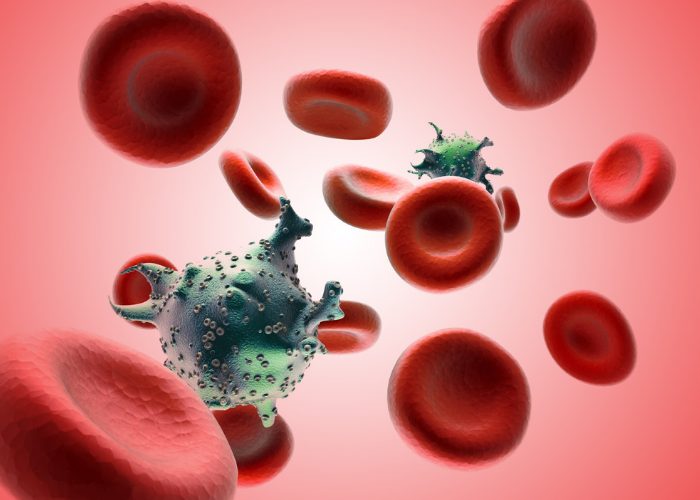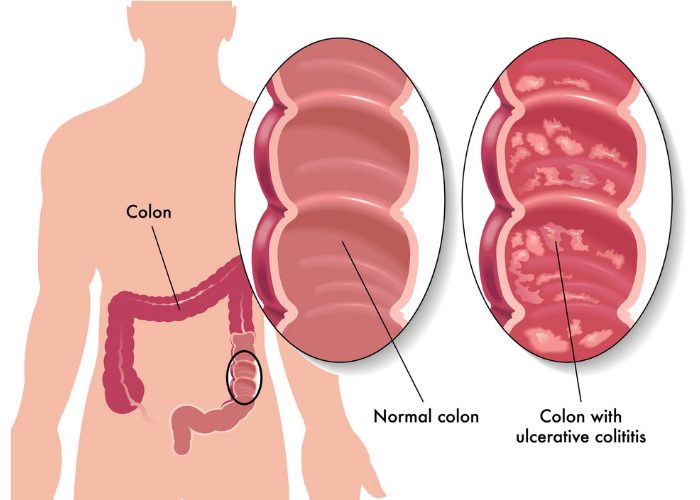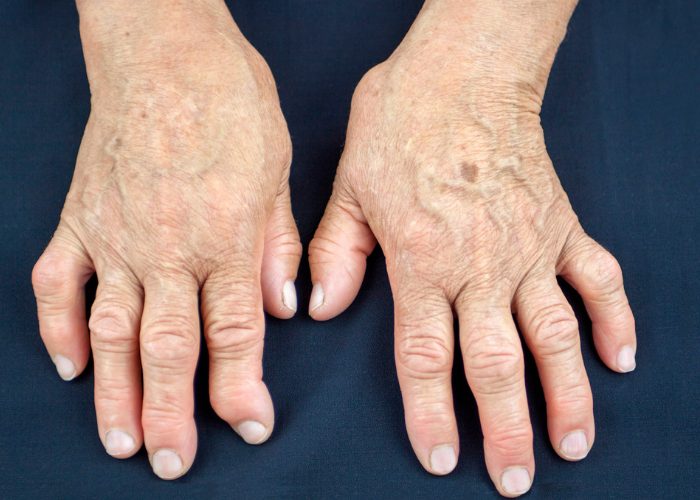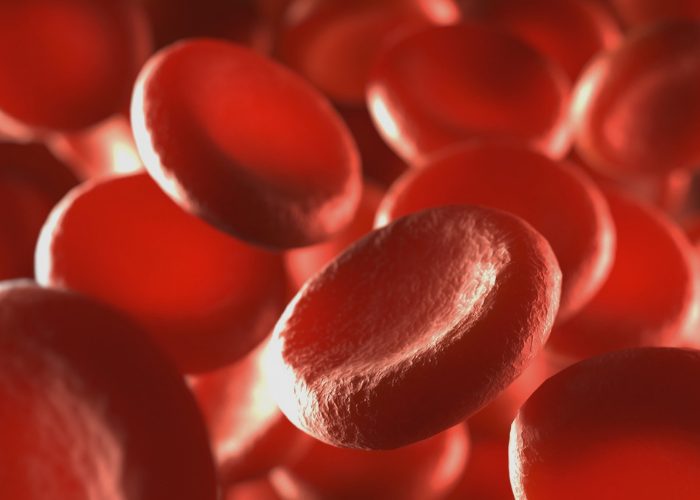Autoimmune diseases are diseases that target the human immune system. These are relatively common and affect millions of Americans every year. The problem with autoimmune diseases is that they target the very systems that the body uses to defend itself, making sufferers unable to recover and increasing the risk of developing other diseases and illnesses.
When you hear the term autoimmune disease, it is likely that familiar conditions like HIV and AIDS spring to mind – conditions where an individual’s immune system is so heavily compromised that it means a lifetime of medication and symptom management. However, there are many more common diseases that you’re more likely to interact with but have received little media attention.
In this article, we’re going to discuss some of the less-common autoimmune diseases you need to look out for, as well as their main symptoms and other key information. If you’re looking to stay healthy, being aware of common autoimmune diseases is the first step to combat them and ensure you’re disease-free.
Autoimmune Diseases

There are over 100 registered autoimmune diseases varying from severely debilitating to an increased incidence of common cold. We cannot cover all of these diseases in a single article, so we’re going to discuss some of the most common and important-to-know diseases that affect Americans today.
If a condition is not on this list, it is not because it is unimportant or trivial. Many of the conditions that have been excluded from this list for brevity are life-changing and should be treated with the same respect and severity as those we’ve discussed. If you any of the following diseases are familiar and you share the symptoms, consult your medical professional for a proper check-up and voice your concerns.
Pro tip: It may be worth looking into the autoimmune Paleo diet (AIP diet), which has helped many people better manage their autoimmune problems.
HIV/AIDS

The most common, well-known form of autoimmune disease also happens to be one of the most intense and life-threatening. HIV and AIDS have been a part of the collective consciousness of the United States for almost 40 years and have changed the lives of millions in this time.
HIV and AIDS are severely damaging to the immune system in a way that leaves the sufferer open to a plethora of other conditions. The extent to which the immune system is suppressed in these conditions makes them deadly: without medication, AIDS can make even the common cold deadly.
These conditions are defined by a variety of common symptoms, though their intensity is far greater than seen in other conditions. The symptoms are seen in many other diseases and illnesses, so it is important to avoid diagnosing yourself without a proper medical examination:
- Chills and shivering
- Fever
- Rash
- Night sweats
- Swollen lymphatic glands
- Fatigue, weakness, and chronic lack of energy
- Rapid, unmitigated weight loss
- Constant illness
The media attention and severity of these conditions makes them easier to identify and early identification is necessary for improving the survivability of these conditions. While no longer a death sentence, these conditions can drastically change your quality of life, so it is important to be vigilant.
Ulcerative Colitis

Ulcerative colitis is a common form of inflammatory bowel disease. This condition is characterized by severe inflammation of the tissues of the lower intestine and presents in a variety of uncomfortable and debilitating ways.
Symptoms are severe and hard to miss, ranging from rectal bleeding and fever to significant weight loss, ulcers, and intense abdominal pain. This condition is seriously underdiagnosed in the United States and may easily be confused with other health problems.
It is important to contact your doctor immediately if you notice any blood or bile (which turns stool green) in your stool. These are common indicators of IBD and ulcerative colitis and should be given medical attention immediately. As with other autoimmune diseases, the earlier you are able to treat IBD, the less debilitating it is likely to become.
Lupus

Lupus is less severe than AIDS or IBD, but it is common enough to be a real concern to millions of Americans. This condition is not likely to kill you, but it damages the tissues of key organs like the heart, kidneys, liver, and lungs. Lupus tends to present on the skin, making it an unpleasant but easily-recognizable autoimmune disease.
Symptoms of Lupus are common among flu and fever illnesses, but provide a comprehensive pattern of symptoms for identification. These include:
- Fever
- Rapid weight loss
- Butterfly rash across the cheeks and bridge of the nose
- “Dry” joint pain
- Sensitivity to light
- Headache, nausea, dizziness, or loss of balance
- Cognitive performance problems
- Tightness or pain in the chest
- Sores in the mouth
Lupus is a common condition and its symptoms are often misdiagnosed as the result of other illness. It is important to be realistic and realize that a flu is not lupus: contact your medical professional if symptoms persist for more than a few days or proceed to worsen over time.
Rheumatoid Arthritis

You may not have thought about arthritis as a degenerative autoimmune disease, but rheumatoid arthritis is a condition where the body’s immune system attacks the joints. The reduction in mobility and pain involved in movement are the result of the immune system damaging the soft tissues (like cartilage) and connective tissues of the joints, leaving them sore, inflamed, and weak.
Rheumatoid arthritis presents like osteoarthritis in many cases, though it is more likely to affect young, otherwise-healthy adults rather than being seen exclusively in the elderly or those with pre-conditions. Unique symptoms are:
- Inflammation and pain in the joints
- Inflammation of the eyes
- Diseases of the lung
- Lumps of tissue under the skin, especially surrounding joints
- Anemia and serious iron deficiency
Rheumatoid arthritis is a painful and debilitating condition that affects many Americans, though public awareness of this condition has remained relatively quiet. The onset of arthritis at a relatively young age is a great indicator of this autoimmune disease: as unpleasant as this symptom is, it is important to pay attention so that treatment can begin as early as possible.
Type-I Diabetes

The majority of diabetes in the United States is Type-II, a form that is generally the result of excessive eating, insufficient exercise, and a diet that relies too heavily on sugars. Type-I diabetes, by contrast, is a condition where the immune system attacks the cells necessary to develop insulin. In this condition, the pancreas is under constant assault from the immune system, resulting in unstable levels of blood insulin and a poor metabolic efficiency.
Type-I diabetes is a real problem for many Americans, primarily through its contribution to the risk of heart disease. While Type-I diabetes is primarily hereditary, it contributes to heart disease by leaving too much sugar in the blood – a condition that contributes to damage across many organs, including the heart itself.
It is likely that you’d know if you have diabetes because it is such a common problem and those who do not control their eating will experience hyperglycemia in childhood. However, there are some key symptoms to be aware of for yourself and others:
- Persistent thirst
- Strong, frequent urination
- Constant hunger or fatigue
- Rapid weight loss regardless of diet
- Slow-healing sores
- Skin conditions including dryness or poor condition
- Loss of sensation in the extremities, particularly the feet/toes
- Poor eyesight
Type-I diabetes is a well-managed condition in American culture, and should not be considered a serious impediment to a long, happy life. While deaths as a result of diabetes are far from uncommon, they should be considered the result of poor medication or management. You will be able to remain healthy through the proper distribution of insulin and a controlled diet.
Thyroid Disease (Hypo and Hyper)

Both hypothyroidism (too little activity of the thyroid gland) and hyperthyroidism (too much activity of the thyroid gland) are autoimmune diseases and have different symptoms. Estimates of thyroid disease (both forms) has been overestimated in the United States, but the condition itself is a real problem for hundreds of thousands of Americans.
The symptoms of thyroid disease surprisingly overlap between hypo and hyperthyroidism. An overactive thyroid and underactive thyroid can both lead to weakness and frailty, so it is important to be vigilant with the symptoms and ensure that you consult your doctor if you feel like a large number of these symptoms describe your life:
- Insomnia
- Rapid weight fluctuation (loss or gain)
- Muscular weakness
- Excessive fatigue
- Sensitivity to temperature
- Digestive discomfort/constipation
- Shaking or sweating
- Muscular aches and stiff joints
- Irritability, constipation, and shaky hands
Being aware of the symptoms of both types of thyroid disease is difficult, and best left to a medical professional. Be sure to eat a diet that is conducive to the management of hormonal problems that exaggerate diabetes and thyroid. These are primarily hormonal problems and the way that you manage your diet and lifestyle can affect the way that these problems manifest, as well as the risk that they pose to your health and wellbeing.
Tests for thyroid disease and diabetes are commonplace at the doctor’s office and you should be checking for these conditions during your regular check-up if you feel like you are presenting relevant symptoms.
Guillian-Barre Syndrome/MS

Guillian-Barre syndrome is a condition whereby the immune system attacks the tissues of the nervous system, resulting in the formation of scars or scleroses on the nerves. This condition is debilitating in the extreme and can contribute to more permanent problems like multiple sclerosis.
Multiple sclerosis is an advanced form of autoimmune disease whereby the development of many scleroses (scarring and scar tissue on the nerves) contributes to reductions in biological function. This can also include the development of long-term paralysis of the muscles and organs if the scarring is severe enough, but also depends on the location of these injuries.
Guillian-Barre syndrome is characterized by its decreased severity, and the fact that it is often reversible. The body may be able to combat these scleroses and patterns of symptoms tend to come in waves of retreat and onset. MS, by contrast, tends to be permanent and the extended reach of these nervous system lesions can negatively affect the systems in the body that might otherwise contribute to recovery. Symptoms of both Guillian-Barre and MS overlap, primarily being separated by the severity and ‘reach’ they demonstrate:
- Weakness or persistent tingling in the extremities
- Localized paralysis (particularly of limbs of extremities, in Guillian-Barre syndrome)
- Weakness and poor co-ordination
- Tremors
- Numbness
When discussing the symptoms that characterize these two autoimmune diseases, it is important to remember that there is often considerable ambiguity about which problem is causing symptoms. The effects and symptoms of attacks during MS, for example, are variable depending on the location and severity of the attack.
Hemolytic Anemia

This rare condition occurs when the immune system attacks the red blood cells faster than the body can replace them.
Hemolytic anemia is arguably more severe than regular anemia because of the resilience to treatment, but it also presents a real problem for life expectancy. Hemolytic anemia becomes increasingly difficult to manage as you age and the production of red blood cells in bone marrow decreases. This condition is best caught early on but, sadly, is often only distinguished from iron-deficiency or sickle-cell anemias by its persistence and resilience to dietary treatments.
This condition presents in a similar way to regular anemia but is far more persistent and cannot be remedied with the supplementation of iron or medicines (such as erythropoietin). These symptoms include:
- Fatigue and weakness
- Heart problems
- Poor skin and eye health
- Coldness of the extremities (poor circulation)
- Headache, dizziness, and nausea

Summary: What Should You Do Now?
Autoimmune diseases are a serious problem for millions of Americans and can contribute to a cascade of health problems and reduced immune function. Allowing an autoimmune disease to develop without the check of medication is a one-way ticket to a vicious circle of reduced resilience and exaggerated symptoms.
Diet and lifestyle are key players in the development of common conditions like diabetes and thyroid, but the first priority is always to consult your medical professional. A professional diagnosis is always more effective and specific than a self-diagnosis and you may find that you have yourself worried without good cause!
Action Steps: Tips for Guarding Against Autoimmune Disease
- Improve your diet and lifestyle to eliminate unnecessary symptoms and remove confusion.
- Check any pre-conditions you may have to ensure that they’re not the cause of your symptoms.
- Refer to the list above to discover if any of the autoimmune diseases discussed here are familiar.
- Consult your doctor and ask for a routine check-up with a focus on your immune function and how it affects the rest of your life!








